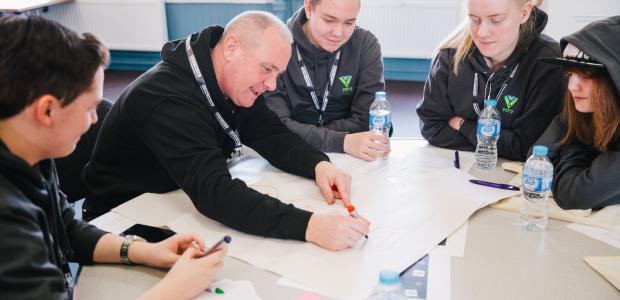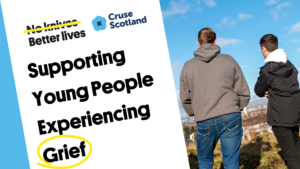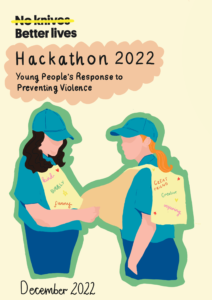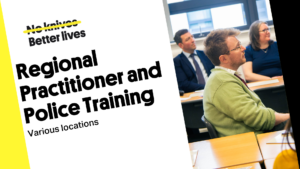5 Ways Youth Workers can Support Young People's Participation in Prevention

5 Nov 2018
by Orielle, Implementing NKBL locally, NKBL toolkits, NKBL and youth work, Peer education
As part of National Youth Work Week 2018, we are celebrating by highlighting the youth work elements that are at the heart of our prevention approach.
Through prevention work, young people consider risk, make reasoned decisions and take control. They also have the opportunity to demonstrate social commitment and express their voice. And perhaps most importantly, young people are confident, resilient and optimistic for the future.
These outcomes explain the difference that youth work makes with, and for, young people, including in prevention work. Find out more about the Youth Work Outcomes.
1. Work in partnership with young people
Working in partnership with young people is part of the fundamental nature of youth work and this extends to prevention work.
Partnership work in prevention could mean developing your sessions and programmes with young people. This way, you will be able to capture what young people care about and are interested in. Your work is bound to have more impact as a result!
2. Get them involved as Peer Educators
Sometimes getting the message from practitioners just won’t cut it and it's the influence of peers that will make the difference in preventing knife carrying. Our Peer Educator scheme trains up young people to deliver NKBL sessions directly to other young people with the support of a practitioner.
Peer Educators not only effectively get the prevention message across, they also gain a lot themselves through their leadership roles.
Sophie from PSYV Dundee East, says, “I know that being a No Knives, Better Lives Peer Educator has benefited me and those around me. I have never had so much confidence in myself before and now things like public speaking or giving speeches don’t scare me.”
You can access free training for young people to become Peer Educators through NKBL. Email Vicki to book a session for your group.
3. Support them to create change
If ending knife crime is an issue young people are already passionate about, you can support their work to influence decision makers.
Over 196,000 young people from across the UK recently voted ending knife crime as their top priority in the UK Youth Parliament’s Make Your Mark campaign. Why not support young people to speak with their local representatives or start a campaign of their own?
4. Highlight the role all young people have as active bystanders
Taking a targeted approach to prevention could exclude a lot of young people you work with. All young people can play a role as active bystanders by speaking up if they know someone is carrying a knife.
By talking to young people about the positive impact of such actions (and dispelling any negative perceptions), young people are given the knowledge necessary to take on this responsibility.
The What Would You Do? resource can help you to do this. Download it here.
5. Be a trusted adult
Practitioners across Scotland are becoming ever-more ‘trauma-informed’. This means they are considering the breadth of experiences young people have had that might lead them down negative paths. We should also keep in mind that many young people resort to knife carrying for protection or because they are scared.
Having a supportive adult in their life can increase young people’s resilience and lead to positive life choices. Stepping up to the role of a trusted adult could make all the difference in a young person’s life.
For more during National Youth Work Week, follow us over on Twitter @NKBLScotland or the hashtag #YWW18.




